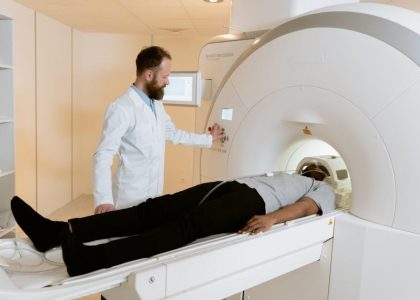A Medical Power of Attorney (POA) in Virginia is a legal document allowing individuals to appoint an agent to make healthcare decisions if they become incapacitated․
It ensures personal wishes are respected and reduces the burden on family members․ The Virginia Healthcare Decisions Act governs its creation, and the form is easily accessible as a downloadable PDF, providing clarity and convenience for residents;

What is a Medical Power of Attorney?
A Medical Power of Attorney (POA) is a legal document appointing an agent to make healthcare decisions on your behalf if you become incapacitated․
It is a type of advance directive ensuring your medical wishes are carried out by a trusted representative․
Definition and Purpose
A Medical Power of Attorney (POA) is a legal document that enables individuals to designate an agent to make healthcare decisions on their behalf․
Its primary purpose is to ensure that personal medical preferences are honored if one becomes incapacitated․
It serves as an advance directive, allowing the agent to act in accordance with the principal’s wishes, providing clarity and reducing the burden on family members during critical times․
Key Differences from a General Power of Attorney
A Medical POA focuses solely on healthcare decisions, unlike a general POA, which covers financial and legal matters․
It becomes effective only when the principal is incapacitated, ensuring medical wishes are carried out․
Virginia law requires specific formalities, such as notarization and witness signatures, to validate the document․
This specialization ensures clarity and protection in medical scenarios, distinguishing it from broader powers of attorney․
Legal Requirements in Virginia
In Virginia, a Medical POA must comply with the Virginia Healthcare Decisions Act․ The document must be notarized and signed by two witnesses to be legally valid․
Virginia Healthcare Decisions Act
The Virginia Healthcare Decisions Act governs the creation and use of advance directives, including medical powers of attorney․ It ensures that individuals’ rights to make healthcare decisions are protected․ The Act outlines specific requirements for valid documentation, emphasizing the need for clear communication of wishes regarding medical treatment․ Compliance with this Act is essential for the document to be legally recognized in Virginia, ensuring that healthcare providers honor the specified directives․ Proper execution under the Act safeguards personal autonomy and medical preferences․
Notarization and Witness Requirements
In Virginia, a Medical Power of Attorney must be notarized or witnessed by two individuals to be legally valid․ The document requires the principal’s signature, acknowledgment by a notary public, or the presence of two witnesses who confirm the principal’s capacity and voluntary execution․ This ensures the document’s authenticity and compliance with state laws․ Proper notarization or witnessing safeguards the integrity of the agreement, making it enforceable by healthcare providers and legal entities․ This step is critical for the document’s validity․

How to Create a Medical Power of Attorney in Virginia
Download the Virginia Medical POA PDF form, fill in the principal and agent details, outline healthcare authority, and ensure notarization or witness signatures for legal validation․
Step-by-Step Process
Obtain the Virginia Medical POA form from official state resources or VA healthcare providers․
Fill in the principal and agent details, and outline the scope of healthcare authority․
Sign the document in the presence of a notary or two witnesses․
Provide a copy to the agent, healthcare providers, and family members․
Store the original securely․
This ensures the document is legally binding and accessible when needed․
Downloading the PDF Form
Downloading the Virginia Medical Power of Attorney form is straightforward․ You can obtain the official PDF from the Virginia State Bar website or through VA healthcare providers․ This form is free and specifically designed to meet Virginia’s legal standards․ Using the correct version ensures your document is legally binding․ Some platforms offer fillable versions, making it easy to complete the form online before printing, saving you time and ensuring accuracy․
Types of Medical Power of Attorney
In Virginia, the Durable Power of Attorney remains effective even if the principal becomes incapacitated, while the Springing Power of Attorney activates only upon incapacity․ Both types allow the agent to make healthcare decisions, ensuring the principal’s wishes are carried out․ These documents provide flexibility and legal assurance, catering to individual preferences and circumstances․
Durable Power of Attorney
A Durable Power of Attorney remains in effect even if the principal becomes incapacitated, ensuring continuous decision-making authority for the agent․ It is commonly used for healthcare matters, allowing the agent to make medical decisions when the principal cannot․ This type is revocable and provides long-term protection․ It is a popular choice for individuals planning ahead, as it offers stability and peace of mind․ The document must comply with Virginia’s legal requirements to be valid․
Springing Power of Attorney
A springing power of attorney becomes effective only when a specific event occurs, such as the principal’s incapacitation․ This type is ideal for those who wish to retain control over their affairs until they are unable to act․ It allows the agent to make decisions only when the triggering event happens, offering flexibility․ Unlike durable POAs, springing POAs delay the agent’s authority, providing peace of mind without immediate transfer of power․ It is a less common but useful option in Virginia․
What Should Be Included in the Document?
The document must include the principal’s and agent’s full names, address, and signature․ It should outline the scope of authority, healthcare preferences, and end-of-life instructions clearly․
Principal and Agent Information
The document requires the principal’s full name, address, and signature, along with the agent’s name, address, and signature․ Alternate agents can be listed if desired․ The agent must be at least 18 years old․ Including contact information, such as phone numbers and email, is recommended․ The principal’s signature must be notarized, with witnesses if required, ensuring the document’s validity under Virginia law․ This section establishes the legal relationship and responsibilities between the principal and agent․
Scope of Authority
The Medical Power of Attorney outlines the agent’s authority to make healthcare decisions, including treatments, medications, and surgeries․ It grants access to medical records and the power to consent or refuse care․ The scope can be broad or limited, allowing the principal to specify preferences․ The agent can act immediately or only upon incapacitation, depending on the document’s terms․ This ensures the principal’s wishes are followed, providing clarity for healthcare providers and family members․
End-of-Life Care Instructions
End-of-life care instructions are a key component of a Medical Power of Attorney in Virginia, allowing individuals to outline their wishes for life-sustaining treatments․ These instructions specify preferences for procedures like CPR, ventilation, and artificial feeding․ They ensure that the principal’s desires are honored, even when they cannot communicate․ This section provides clarity for families and healthcare providers, reducing the burden of decision-making during emotionally challenging times while respecting the individual’s autonomy and values․

Where to Get the Form
The Medical Power of Attorney form in Virginia can be obtained from VA healthcare providers or official state resources, ensuring easy access for residents․
Official Virginia State Resources
Official Virginia state resources provide accessible Medical Power of Attorney forms, ensuring compliance with the Virginia Healthcare Decisions Act․ The state offers downloadable PDF templates through its legal websites and health departments․ These resources are reliable and regularly updated, making it easy for residents to obtain accurate and legally valid documents․ Additionally, official portals guide users through the process, ensuring clarity and adherence to state-specific requirements․
VA Health Care Providers
VA health care providers offer convenient access to Medical Power of Attorney forms, including the VA Form 10-5345․ These forms are specifically designed to comply with Virginia state laws and ensure seamless processing․ Veterans and eligible individuals can obtain these documents directly from their VA health care providers or download them from official VA websites․ This streamlined process simplifies the creation of a Medical POA, providing peace of mind and legal assurance․
Online Legal Platforms
Online legal platforms provide convenient access to Medical Power of Attorney forms in Virginia․ Websites like the Virginia State Bar and Wythe County Community Hospital offer downloadable and fillable PDF templates․ These platforms ensure forms are state-specific and legally compliant, simplifying the process for residents․ Users can easily complete and print the documents, making it a cost-effective and efficient way to establish a Medical POA without needing physical visits to legal offices․
Cost of a Medical Power of Attorney in Virginia
In Virginia, Medical Power of Attorney forms are often free, with options available through state resources or legal platforms․ Notary fees may apply, typically ranging from $25 to $50, depending on the service․ Paid legal assistance is optional but can add additional costs, making it a cost-effective solution for residents․
Free Templates vs․ Paid Services
Free Medical Power of Attorney templates are readily available online, often provided by official Virginia state resources or legal platforms․ These templates are legally valid and suitable for individuals with straightforward needs․ Paid services, such as attorney consultations or premium legal software, offer customization and professional guidance, which may be beneficial for complex situations․ While free templates are cost-effective, paid services provide added assurance and tailored support, catering to different preferences and requirements․
Notary Fees
Notary fees for a Medical Power of Attorney in Virginia are typically between $10 to $25, depending on the notary’s charges․ This cost ensures the document is legally validated․ The notarization process involves witnessing the principal’s signature, adding an official seal, and verifying identity․ While the fee is a one-time expense, some institutions, like hospitals or legal aid offices, may offer free or reduced-fee notary services for such documents․

Role of the Agent
The agent is responsible for making healthcare decisions on behalf of the principal, acting in their best interest and following their wishes as outlined in the document․
Responsibilities and Duties
The agent is responsible for making healthcare decisions on behalf of the principal, ensuring their wishes are honored․
This includes communicating with healthcare providers, reviewing medical records, and approving or refusing treatments․ The agent must act in the principal’s best interest, following any guidelines outlined in the document․ They are also tasked with making end-of-life care decisions if the principal is unable to communicate․ The agent’s role requires staying informed and avoiding conflicts of interest to ensure ethical decision-making․
Choosing the Right Agent
Selecting the right agent for a Medical Power of Attorney in Virginia is crucial․
The agent should be someone trustworthy, reliable, and capable of understanding and carrying out the principal’s wishes․
They must be at least 18 years old and willing to take on the responsibility․
It’s important to choose someone who is available to act when needed and can make decisions under pressure․
Clear communication about the principal’s preferences and values is essential to ensure the agent can act faithfully on their behalf․

How to Fill Out the Form
Fill out the Virginia Medical POA form by providing your personal information, designating your agent, and outlining the scope of their authority․
Ensure all sections are completed clearly and accurately to avoid confusion or legal issues․
Sign the document in the presence of a notary public to finalize it․
Required Information
The Virginia Medical Power of Attorney form requires the principal’s full name, address, and signature, as well as the agent’s contact information․
You must specify the scope of authority granted to the agent, including healthcare decisions and end-of-life care preferences․
The document must be witnessed by two individuals or notarized, depending on Virginia’s legal requirements․
Ensure all details are accurate to avoid legal complications and confirm the form complies with state laws․
Common Mistakes to Avoid
Common errors include failing to notarize the document or secure witness signatures as required by Virginia law․
Ensure the principal’s intent is clearly stated, avoiding vague language․
Do not overlook designating alternate agents or specifying end-of-life care preferences․
Failing to provide copies to healthcare providers can delay implementation․
Avoid incomplete or inaccurate agent authority descriptions, as this may lead to legal disputes or confusion․

Revoking a Medical Power of Attorney
Revoking a Medical Power of Attorney in Virginia requires a written revocation document․ Notify the agent and healthcare providers immediately․ Ensure the revocation is properly notarized to avoid legal issues․
Process for Revocation
Revoking a Medical Power of Attorney in Virginia involves creating a written revocation document․ The principal must sign and notarize it, then provide copies to the agent and healthcare providers․ Notification ensures the agent understands their authority is terminated․ Witnesses may be required, depending on the circumstances․ Once revoked, the original POA is no longer valid, and the principal should destroy it, keeping a copy for their records to prevent future misunderstandings․
Notifying the Agent and Healthcare Providers
After revoking a Medical Power of Attorney, it is crucial to notify the agent and all relevant healthcare providers in writing․ The revocation document should be delivered to the agent and filed in the principal’s medical records․ Notification ensures the agent understands their authority has been revoked and prevents unauthorized decisions․ Providing copies to healthcare providers guarantees they are aware of the change, avoiding potential conflicts or misuse of the revoked POA․ Timely communication is essential to protect the principal’s interests and maintain clarity in their care․

Virginia-Specific Laws and Regulations
Virginia’s Medical Power of Attorney must comply with the Virginia Healthcare Decisions Act, ensuring the document meets state-specific legal requirements and standards for validity and execution through proper notarization and witness protocols, guaranteeing the principal’s rights and wishes are legally protected․
State-Specific Forms and Requirements
In Virginia, a Medical Power of Attorney must adhere to the Virginia Healthcare Decisions Act, requiring specific legal language and execution procedures․
The document must be notarized and witnessed by two individuals who are not the agent or related to the principal․
The state provides official PDF forms, such as the Advance Directive, ensuring compliance with both state and federal laws․
These forms are accessible through VA healthcare providers or official Virginia government websites, guaranteeing authenticity and legal validity․
Compliance with Federal Laws
A Virginia Medical Power of Attorney must comply with federal laws, including HIPAA, to ensure patient privacy and the agent’s access to medical records․
Under the Uniform Health-Care Decisions Act, Virginia’s POA aligns with federal standards for healthcare decision-making․
This ensures the document is legally binding and recognized nationally, protecting both the principal and the agent’s rights while adhering to federal guidelines for advance care planning․
Why is a Medical Power of Attorney Important?
A Medical Power of Attorney ensures your healthcare wishes are honored and reduces the emotional burden on loved ones during critical decisions․
Ensuring Your Wishes are Respected
A Medical Power of Attorney ensures your healthcare preferences are honored, even if you cannot communicate․ By appointing an agent, you guarantee that decisions align with your values and wishes․ This legal document provides clarity for healthcare providers, reducing confusion and ensuring your autonomy is maintained․ It also includes specific instructions for end-of-life care, making it a vital tool for respecting your desires during critical moments․
Reducing Burden on Family Members
A Medical Power of Attorney alleviates the emotional and decision-making burden on family members during critical times․ By designating an agent to manage healthcare decisions, it prevents loved ones from facing difficult choices alone․ This document ensures clarity and reduces potential conflicts, allowing families to focus on support rather than navigating uncertainty․ It is a compassionate step that eases their responsibility while respecting your autonomy․
Real-Life Applications and Examples
A Medical Power of Attorney is crucial in real-life scenarios, such as end-of-life decisions or sudden incapacitation, ensuring your wishes are honored․ For instance, if you are hospitalized and unable to communicate, your agent can make informed choices about treatments or life-sustaining measures, aligning with your pre-stated preferences and providing clarity for healthcare providers․
Case Studies
Real-life applications highlight the importance of a Medical Power of Attorney in Virginia․ For instance, Sarah, a Virginia resident, appointed her daughter as her agent․ When Sarah suffered a severe stroke and couldn’t communicate, her daughter used the POA to make decisions aligned with Sarah’s wishes, ensuring her end-of-life care reflected her values․ Similarly, James, a veteran, used a VA Form 10-5345 to appoint his wife, allowing her to manage his healthcare when he became incapacitated․ These cases demonstrate how a Medical POA provides clarity and peace of mind․
FAQs About Medical POA in Virginia
- What is a Medical POA? It allows you to appoint an agent to make healthcare decisions if you become incapacitated․
- Where to get the form? You can download the Virginia Medical POA PDF from official state resources or VA healthcare providers․
- Is notarization required? Yes, the document must be notarized to be legally valid in Virginia․
- Why is it important? It ensures your wishes are respected and reduces the burden on loved ones during critical times․
Creating a Medical Power of Attorney in Virginia is essential for ensuring your healthcare wishes are honored․ By using the downloadable PDF form and following state guidelines, you can appoint an agent to make decisions on your behalf, providing peace of mind for you and your family․ This legal tool is a proactive step in managing your future healthcare needs effectively․
Final Thoughts
A Medical Power of Attorney is a vital document for Virginia residents, ensuring their healthcare wishes are respected․ It provides clarity and peace of mind, allowing individuals to appoint trusted agents to make decisions on their behalf․ By complying with Virginia’s legal requirements and using accessible PDF forms, residents can effortlessly create this document․ Taking this step is a responsible and compassionate act, reducing the burden on loved ones while safeguarding personal autonomy in critical situations․
Next Steps for Implementation
Once the Medical Power of Attorney document is completed, ensure it is notarized and witnessed as required by Virginia law․ Provide copies to your agent, healthcare providers, and family members․ Review and update the document periodically or when life circumstances change․ Store the original in a secure, accessible location․ Discuss your wishes with your agent to ensure they understand their role and responsibilities․ This proactive approach guarantees your healthcare preferences are honored and reduces potential conflicts or delays in decision-making processes;





